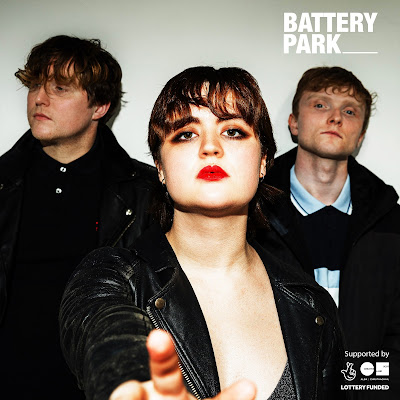Recording and Directing
How is this....
similar to this....
So I have been pretty busy these last few weeks recording ex-bandmate Paul McGranaghan's latest album - currently entitled 'Carry The Torch'. It's the first time in over a year that I have been back in my studio working and recording with other musicians and, after so much time spent directing and working on plays, it struck me how similar to the two disciplines - music production and theatre directing - are.
- Both are about getting people comfortable and ready to be creative. In recording this is about making sure things such as a headphone mix is as good as it can be, that the musicians can see one another and that there are as few boundaries (such as playing at a certain volume) in the way of working as possible. Unfortunately in my studio there are a number of limitations in place but we do our best to get everyone as comfortable as possible. I believe the same kinds of thing are important in directing theatre - especially if devising. If conditions are not right, from simple thing s like the room being cold and drafty, to the setting up of tasks that are not conducive to productivity, then you will get something (as you would in a recording studio) but it will not be as inspired or as left-field as if the conditions are correct. If a group of actors or musicians are entirely comfortable with the situation and with one another - that's when exciting things start to happen. There's nothing greater to watch than musicians getting so into what they are doing, rocking out, smashing their instruments (not literally), caught up in the adrenalin of the moment, I think the same kind effect can be found in a rehearsal room, there are sometimes just bursts of creativity that happen and something magic appears. In both cases you need to have the chops to get there, but if you're working with talented, skilled professionals then when they catch fire... well that's the reason I'm involved in a business where there's no money! And you won't get that kind of work if people are not comfortable and ready to be creative.
- The two disciplines are a similar blend of the artistic and the technical, and it's up to the director/producer how that scale is tipped. I hate jargon - a lot of people don't - but to me it's using clever words to make something relatively simple sound more complicated than it is. And I think that if I started talking about mic pick-up patterns or discussing the minutia of the delay effect that I was using then the musicians would quickly become more focused on what they don't know rather than focusing on what they do. The same can be said about directing, I can be looking at a play and I can be thinking about the atmosphere changes and how the lighting from down stage right will pick up that shadow on that piece of set but, in the end, that's not going to help the actor - it's just going to make them feel a little more confused. Of course the director and the producer's mind must be thinking technically almost all of the time, I think the real skill is how you can deal with that and communicate it, in a way that will fuel the creativity of the people you are working with, rather than blocking whatever they are capable of.
A lot of mics, a lot for the producer to keep track of, the musicians should hardly know they are there.
|
- Taste is the last thing that immediately comes to mind when thinking about this stuff. It's all about taste. What you decide to add, to accentuate, to focus on. If you are working with a great songwriter or a great playwright then your job comes down to how you can get that song sounding great or get that text to fly off the page. And that is where the creative brain kicks in. You will have the knowledge of your tools, but the true skill is knowing what tools will work for what situation, and it will never be the same. That's my big bug-bear about books about directing, they can offer useful tips but if you follow them slavishly then you're going to end up with something that is fundamentally not creative. You have not used that part of your brain that thinks "what if..." you are just using a formula. Anyone can do that. The joy in being involved in an art is that there are limitless possibilities. I'd rather have a guitarist in the studio who plays something simple that sounds like no-one else rather than someone who can play every note of The Lamb Lies Down On Boradway - and I think the same can be said of a producer and director. You can use others for inspiration but in the end it's your taste that will determine how things sound, look, feel.
And so I end my pontificating. I don't really know the purpose in writing all of this, just felt it was interesting to me - there may be something in it, or there may not... who knows. But it's done now....





Comments
I used to lead a mixed-team of techie geeks and creative-types when I worked in a new-media agency, and I swear the most effective things I did in that time was to create an environment that allowed folk to "get on with stuff". So, no more constantly ringing phones, mess and clutter on all the shelves, sun glaring on their screens, etc... was amazing the difference it made to the place :)
Am interested in what other advise you'd have to maximise the creativity of a situation.
Post a Comment